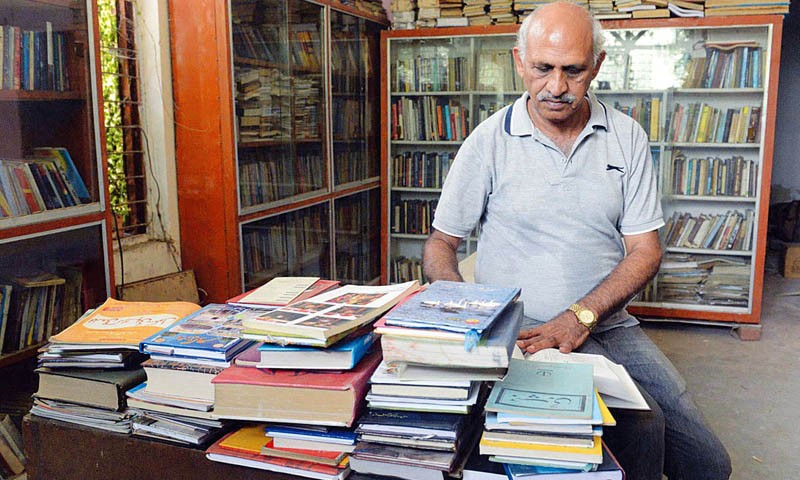
Punjabi Khoj Garh is a research library which boasts nearly 10,000 books on diverse disciplines such as literature, history, poetry, and criticism

Punjabi Khoj Garh is a research library which boasts nearly 10,000 books on diverse disciplines such as literature, history, poetry, and criticism. As the name suggests, the emphasis is on the promotion of Punjabi language and literature, and that is why more than 70 per cent of the total number of books is in Punjabi.
Apart from the mammoth collection of books which would fascinate a big reader, the idyllic location of the library adds to its beauty, as it is far from the maddening crowd of the city. It is almost an hour’s drive from Lahore, on the main Ferozepur Road, near Lalliani toll plaza, just a few kilometres short of Kasur.
You have to cross a gated lawn before you can enter the library building. A spacious hall is the first place you reach; its walls greet you with framed photographs of different men of letters from the contemporary and old times that Punjab has ever known.
There’s another large room which, I am told, is reserved for books and magazines. This one is rather cluttered, and the books seem as if they were shoved into the racks. Some of them lay scattered on a dust-rimmed table. A kitchen caters to the visitors -- most of whom are research scholars.
The moving spirit behind Khoj Garh is the sexagenarian Iqbal Qaiser, himself a Punjabi poet, researcher, and activist. In an exclusive meeting, he tells TNS that he laid the foundation of the place in 2001, "on a tract of agricultural land." The purpose, he adds, was "the uplift of the Punjabi language and culture."
According to Qaiser, a number of MPhil and PhD students have benefitted from the books at the library already. "At Khoj Garh, I have also organised two Baisakhi Festivals and four conferences (between the year 2008 to 2017) on Baba Farid and Guru Nanak which were attended by local and foreign delegates who also presented their papers."
Khoj Garh has also published a few Punjabi books -- "seven, so far," Qaiser says -- and there are more coming out soon.
He also plans to digitise the library. This involves "scanning the books and uploading them online so that people can utilise them without spending a penny."
Iqbal Qaiser served as a primary school teacher in Lahore for nearly two decades but he was always a Punjabi activist at heart. He would frequent the sacred places of Hindus and Sikhs which turned into an idea for a book. After years of hard work, he was able to compile a pictorial, coffee-table book, titled ‘Historical Sikh Shrines of Pakistan.’ It was published in English and Gurmukhi script simultaneously, for the convenience of the Sikhs.
In the book, Qaiser brought to light several important religious places of the Sikh community, scattered all across Pakistan. It was received warmly by the Sikhs around the world. It has seen four editions so far.
Another book, which is in the press, talks about the Jain temples in Pakistan. "I combed different parts of the country, and spotted 25 temples belonging to the Jains. Most of them are in Punjab and Sindh, while a few are in Khyber Pakhtunkhwa.
Qaiser says regretfully that there is a Jain temple in Bannu which he couldn’t visit because of the law and order situation.
Discussing the contents of the book, he says that there were three Jain temples in Lahore but today only one is left intact. It lies inside the Bhatti Gate.
The English and Gurmukhi version of the book shall be published by the Patiala University of Indian Punjab. The Punjabi Adbi Board Lahore is also printing its own Punjabi version.
Presently, Qaiser is compiling an encyclopedia of Pakistani Punjabi films. It will be in Punjabi language, he reveals, and should be out by the end of this year. He claims that the encyclopedia covers the eras from 1924 to 2000 and it shall have the profiles of all the Punjabi film actors, actresses, singers, producers, and musicians.